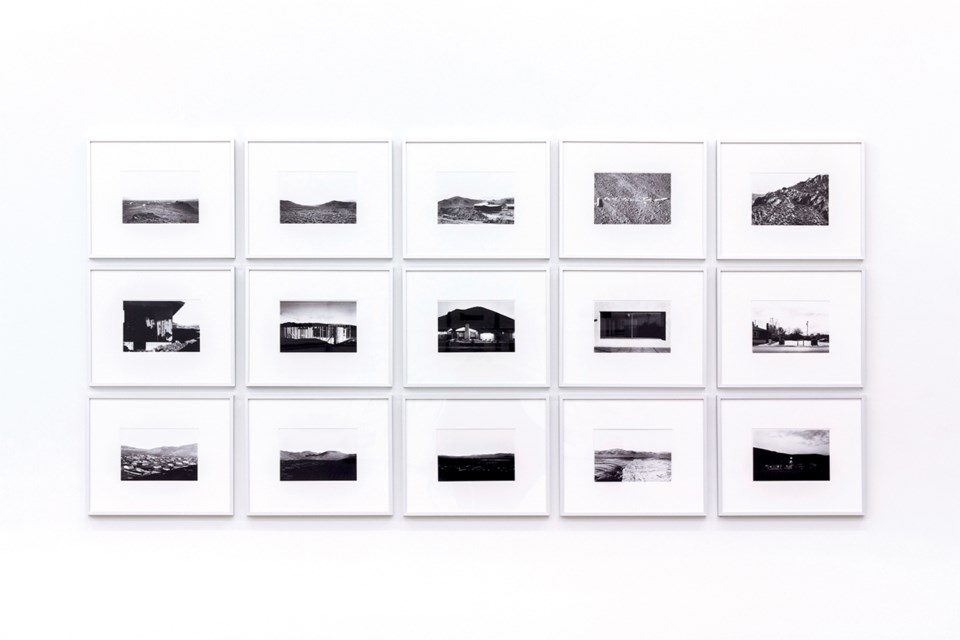They are at once both single works and a collective take on moments in time.
Presented in four separate portfolios and a diptych, the serialized images show a reductive perspective on the built environment.
This is a hallmark of the work of photographer Lewis Baltz, explains Lee Plested, director of the Griffin Art Projects gallery on Welch Street in North Vancouver.
“When he first started making photographs he was really inspired by minimalist art, which was looking at the industrial materials of the American built environment in a way that was almost abstract,” he says of the artist. “He was making a form that was responding to painting and that sort of scale of object.”
A lot of modern painting ends up having a historical and social aspect, explains Plested.
“And that was his desire for his art: that it would create a complex and historical portrait of a single place through this object that is a number of images that you would see as a single work.”
Baltz is one of the most well-known photographers of what is understood as the beginnings of conceptual photography and photography as a fine art form in America during the 1960s and 1970s, and was influential on Vancouver artists such as Ian Wallace, Jeff Wall, and Christos Dikeakos, notes Plested.
“It really was a philosophical way of thinking about making pictures of the landscape that has never been seen in Vancouver before,” he explains. “It deeply resonates with our own history of photography.”
This is the first solo exhibition of Baltz’s concept-driven photography in Vancouver (on until May 20). In conversation with Baltz’s work is a floor piece by Carl Andre. The grid of steel squares arranged as a serialized pattern emphasizes the minimalist roots of the photography, says Plested.
“What minimalism was also interested in doing was also setting up situations where our body responds to the physicality of industrial materials to realize the different relationship between the viewer and the art object,” he explains.
Griffin Art Projects is open Saturdays noon-5 p.m. and by appointment by emailing info@griffinartprojects.ca.
For more information visit griffinartprojects.ca.



